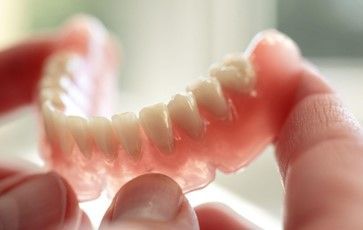


As you age, your body undergoes a variety of changes, and your dental health is no exception. Over time, you may experience issues such as gum disease, tooth decay, or even tooth loss. Understanding the common dental problems that may arise in older age, such as gum disease, tooth decay, and tooth loss, can help you take proactive steps to maintain your oral health. By recognizing the signs early and seeking regular dental care, you can preserve your smile and overall well-being for years to come. This dental post will delve into some of the most common dental issues faced by older adults, their causes, and ways to mitigate them.
Tooth Decay
Tooth decay, or dental caries, is not just a child's problem. Older adults are at increased risk of developing cavities. This can be attributed to several factors, including receding gums, which expose the softer root surface of the tooth, which is more susceptible to decay. Saliva production may also decrease with age, and since saliva is essential in neutralizing acids and washing away food particles, this can lead to a higher risk of cavities.
Gum Disease
Gum disease, or periodontal disease, is a common issue in older adults. This condition usually starts as gingivitis, a mild form of gum disease characterized by red, swollen gums that may bleed easily. Untreated gingivitis can advance to periodontitis, a severe stage where gums recede from teeth, forming pockets susceptible to infection. This can lead to tooth loss and even contribute to other health problems, such as heart disease.
Tooth Loss
Tooth loss is often seen in the elderly, commonly as a result of advanced gum disease or tooth decay. Losing teeth can affect your ability to chew and speak and your confidence and smile. Dental implants, bridges, and dentures are some of the solutions available to address tooth loss, but prevention naturally remains the best course of action.
Dry Mouth
Dry mouth, or xerostomia, is another frequent complaint among older adults. Certain medications, including antihistamines, decongestants, and medications for high blood pressure, can contribute to reduced saliva production, resulting in dry mouth. A dry mouth causes discomfort and can lead to issues such as difficulty swallowing and speaking and an increased susceptibility to oral infections like thrush and gum disease.
Oral Cancer
The risk of oral cancer increases with age. Early detection is vital for effective treatment, so it is important for older adults to have regular dental check-ups that include a screening for oral cancer. Symptoms may include sores, lumps, or rough spots in the mouth, as well as difficulty chewing or swallowing.
Worn Enamel
Over the years, the enamel on your teeth has worn down due to constant use. This can result in increased tooth sensitivity to hot and cold temperatures and a greater susceptibility to cavities. Brushing with toothpaste for sensitive teeth and avoiding overly aggressive brushing can help manage this condition.
Receding Gums
As gums recede with age, the roots of the teeth become exposed. This not only increases the risk of decay but can also lead to increased sensitivity and other dental problems. Proper dental care, including regular flossing and the use of a soft-bristled toothbrush, can help slow the progression of receding gums.
Maintaining good dental health is essential as you age. Regular dental check-ups, proper oral hygiene, a balanced diet, and staying hydrated are pivotal in mitigating the common dental problems associated with aging. Staying informed and proactive can make a significant difference in preserving your smile and overall well-being as you get older. If you are suffering from one or more of these dental issues, consider contacting our office at Advanced Dental Care to schedule an appointment.













